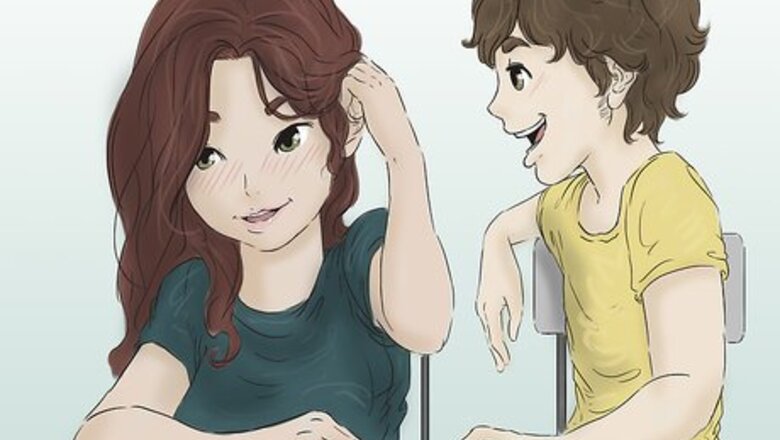
views
Evaluating the Friendship
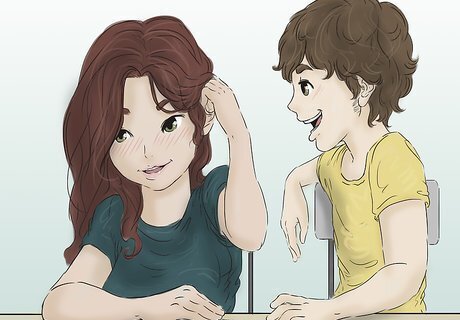
Look for hints. Try to find out if the feeling is mutual. Does your friend seem to drop verbal or physical hints that she sees you as a potential partner? Does she flirt with you? Or, does she treat you as a sibling or talk about her attraction to others? If the latter, then she may be signalling that she isn't interested in you.

Think about compatibility. You may be perfectly compatible as friends. You may get along famously, spending hours together one-on-one or in larger groups of friends, laughing together, and sharing all of your thoughts. But this does not guarantee you will be compatible as lovers. Do you share the same values? Beliefs? Passions? Will you have good chemistry? If you cannot determine this, can you honestly imagine that the two of you would work as a couple?
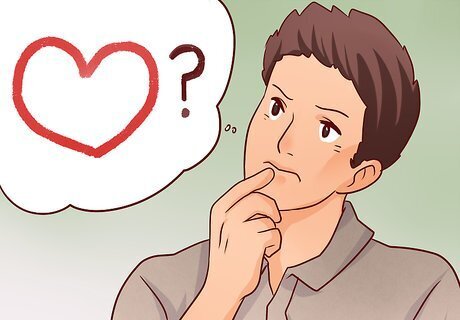
Be sure of your motives. Are you sure that your feelings are more than just lust or passing fancy? Sometimes major life events push people together and cloud our judgment. Are you on the rebound? Are you lonely? Are you both dealing with personal loss, like a death in the family? If the catalyst is one of these, you may want to wait and see how you feel in one or two months. Make certain that your interest is motivated by legitimate desire, longing, or love.

Consider the risks. You are about to take a big risk. However close you may be, and however compatible you are as platonic friends, going from friend to boyfriend or girlfriend is a huge change in any relationship – so huge that it will be changed forever. You should therefore carefully consider whether the risk is worth it. Can you get over a rejection? Are you willing to risk harming your friendship, even ending it, for the chance at love? You, and your friend, might not want that.
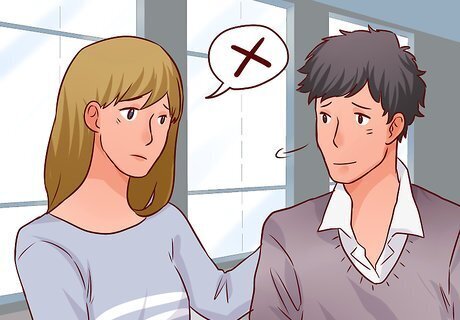
Prepare for rejection. It may be that she doesn't see you as anything more than a friend. You have to be prepared for that possibility. You also have to understand that your relationship won't be quite the same once you've come clean with your feelings. It may be awkward, or it may end entirely. If you have decided to risk your friendship, you have to be able to accept the consequences.
Making Your Move
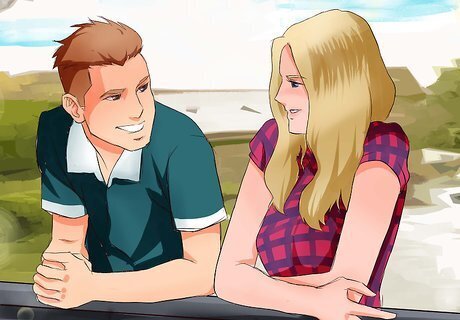
Plant the seed. One way to begin your move is to signal that you are indeed interested. Your friend may not realize it, and she may share your feelings and have no idea that you feel the same way. Talk openly about your dating life. Perhaps even ask your friend about hers. You will have to change the way that she sees you, and to show her that you are looking for a relationship.
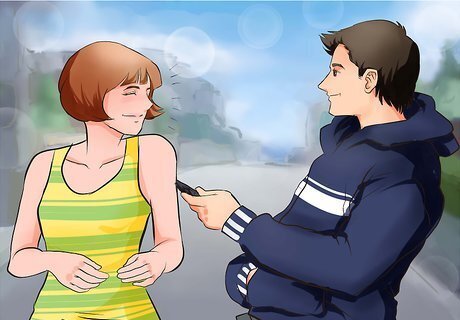
Deepen your interest. If you have known each other for a while, you should already have some idea of what your friend likes, dislikes, does for fun, and looks for in others. Deepen your interest in her. Ask her about her activities. Does she like tennis? Didn't she know that you do too? Perhaps you could play a match together sometime? Focus on activities that you share with an eye to demonstrating your compatibility.
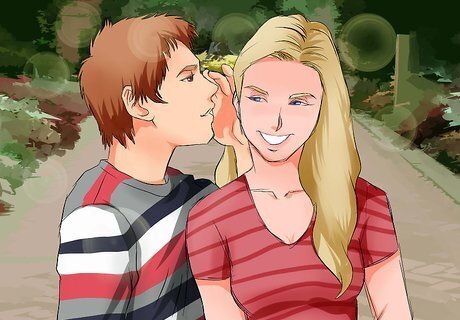
Flirt. Scientific studies show that flirting – signalling interest and availability – often trumps physical attractiveness. Start slowly. Smile, make eye contact, joke, perhaps even lightly touch your friend on the arm. But don't come out too strong or too physically. After all, your aim is to signal your interest and at the same time put your friend at ease.

Make her feel comfortable. Even if you are flirting, always keep your friend's level of comfort in mind. The worst possible thing you can do is to put her off by coming on too strongly. Laughter is usually a good social lubricant; make her laugh and show by your behavior and demeanor that you are a fun person, and that you enjoy her company. Try to be your old lighthearted self - the one that she knows so well - and not let the pressures of the situation make you too serious.
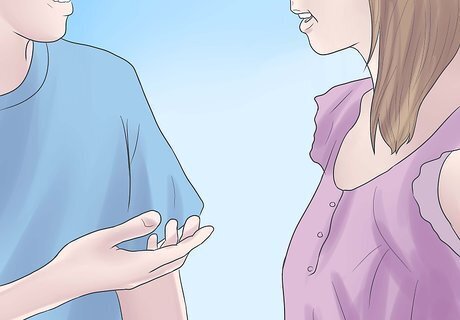
Ask for a date. After you have weighed the decision, signaled your interest, and tested the waters, it is at last time to take the leap: ask your friend out. Keep in mind that you will have to be upfront about what you are asking so that there is no ambiguity. This is a date, not just a friendly get-together. The best way is to ask her in person. This will let you see her body language and reaction and help you to modify your behavior in turn. You may be more comfortable asking over the phone, by message, or through a third person, and these are all valid options. But keep in mind that face to face contact, however scary, is more personal and friendly.
Embracing the Outcome

Arrange a first date. Your friend said yes. What took you so long to ask! In arranging the first date it is important to keep the situation low key. You've never been together in this way before, and both of you may feel stressed. Go for a walk together, play a tennis match, go for coffee. It does not need to be a major event or even last long. The key thing is to see each other in a new dynamic.
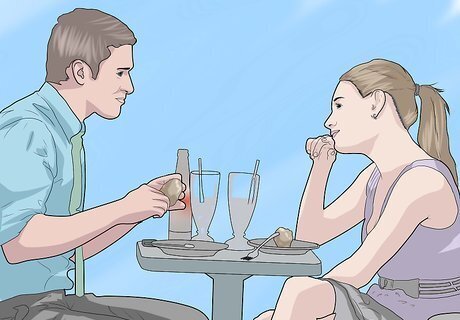
Go slowly at first. If the first date was a success, start to see each other more regularly. You will both need time to make a mental and physical transition from “friends” to “couple.” Don't press the issue. On the other hand, make an effort to treat your new beau as a beau, not just your friend. Start to plan proper dates and make it clear that the relationship has changed.
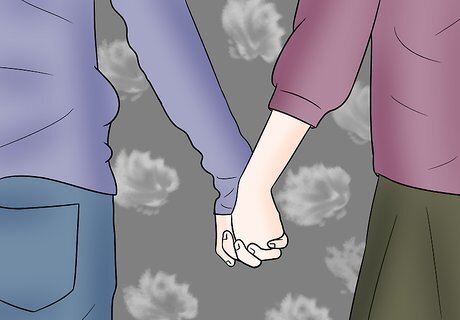
Get physical when the time is right. There is no need to rush this. You may already be used to greeting each other with a hug. Start there. After one or two dates, try holding her hand. Be as confident and relaxed as possible, finding new but still comfortable ways to add touch to the relationship. In time, and with chemistry, you can start thinking about the first kiss and cuddling.
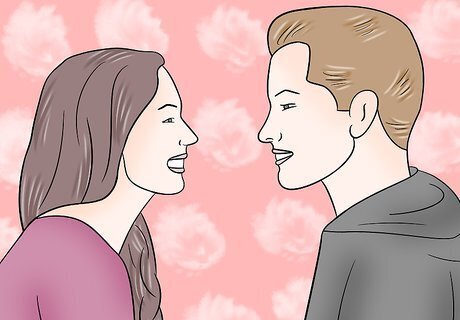
Be open about the relationship. You and your beau should be clear with each other about your expectations. If one of you wants a serious relationship and the other does not, things will probably not work out. Let your friends in on your changed status, as well, especially if they are mutual friends. Keeping them in the dark may make it seem as though you hiding something, or make for added complications.
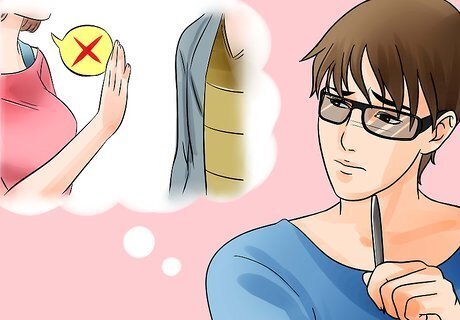
Accept rejection gracefully. Your friend may say no. She may feel that the first date didn't work or that you didn't share enough chemistry. Or, you may date for a time before deciding that you were both better off as friends. Whatever the case, you will have to come to terms with this outcome and move on in time. With luck you and your friend can still be on good terms, or even friends as in the past.
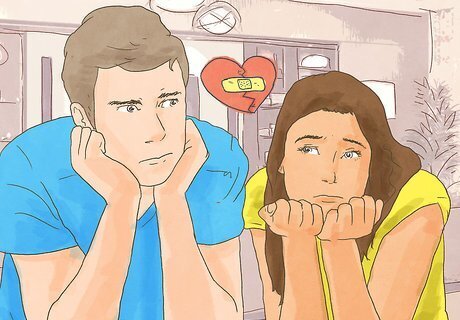
Try to salvage the friendship. A failed romance does not necessarily doom a friendship. But it can be problematic. If you decide to stay friends, try to stay lighthearted about your failed efforts -- a bit of humor can go along way. That said, set clear emotional and physical boundaries: no kissing, no flirting, no hanky-panky. If you need time to mourn, put some distance between yourselves. Date other people, as well. Don't maintain the friendship in the sheer hope that she'll somehow come around again and date you again. While the worst case scenario is having to cut off all contact, at the very least you will have closure and know that you gave it a valiant effort.












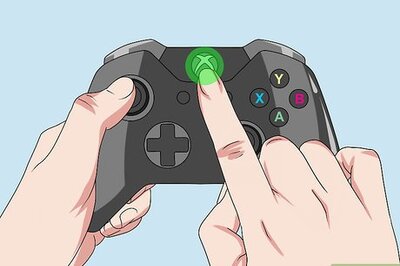

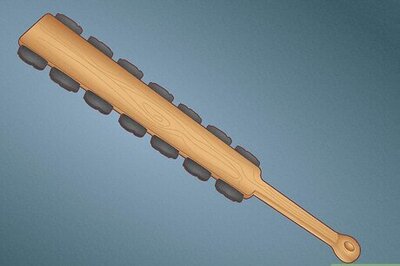
Comments
0 comment